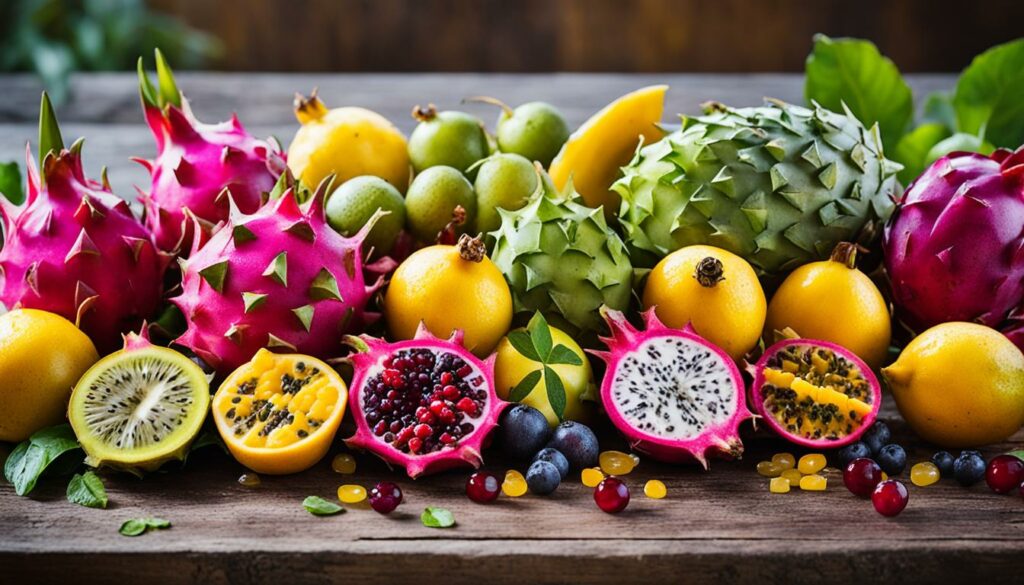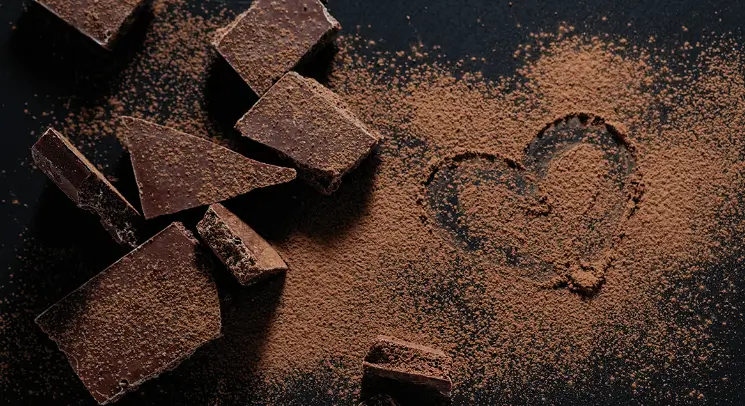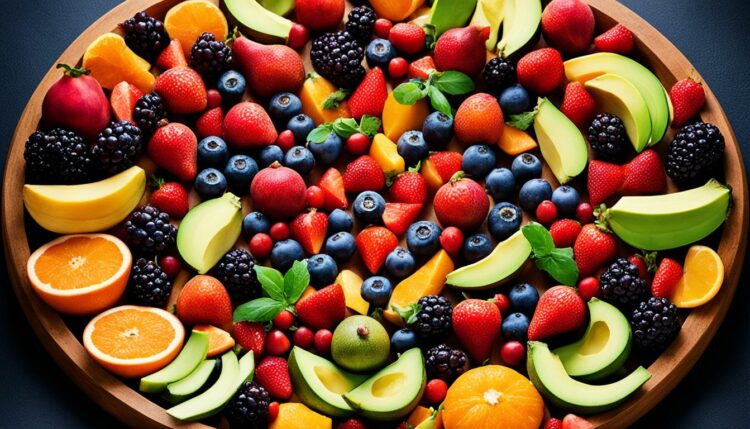Did you know that 40% of women face sexual issues during the sexual response cycle? If you’re dealing with a low libido, you’re not the only one. Luckily, there are natural ways to boost your desire and improve your intimate life. This article will look into natural aphrodisiacs for women, from herbal remedies to foods that can help.
Key Takeaways
- Certain natural supplements like DHEA, ginseng, and zinc may help improve sexual desire and function in women.
- Foods like pistachios, pomegranate juice, and berries are being studied for their potential aphrodisiac properties.
- Herbal remedies like maca and tribulus may offer sexual enhancement benefits, but more research is needed.
- The placebo effect plays a role in the perceived effectiveness of some aphrodisiacs, highlighting the power of belief.
- Dangerous substances like Spanish fly and mad honey can pose serious health risks and should be avoided.
What Are Aphrodisiacs?
Have you ever heard the term “aphrodisiac” and wondered what it means? Aphrodisiacs are foods or herbs that boost sexual desire and arousal. They come from the name of the Greek goddess of love, Aphrodite.
Definition and Origins of Aphrodisiacs
Aphrodisiacs are foods and herbs believed to make you ready for love or increase your sex drive. They’ve been used for centuries in traditional medicine. This is especially true in Asian and South American cultures to help with sexual function and desire.
An aphrodisiac is a food or drug that makes you more sexual, brings on desire, or makes sex more pleasurable. The idea of using aphrodisiacs goes back to ancient times. People thought certain foods and herbs could spark passion and improve sexual performance.
Even though many aphrodisiacs are debated, some natural substances might really help with sexual desire and function. Studies show that many people struggle with sexual issues. So, the study of aphrodisiacs is still a big deal.
“Aphrodisiacs have been used for centuries in traditional medicine, particularly in Asian and South American cultures, to enhance sexual function and desire.”
Foods That May Act as Natural Aphrodisiacs
Certain foods are known for boosting libido naturally. These include nutrient-rich fruits and veggies, as well as spices and herbs. They might help increase your desire and improve sexual function.
Aphrodisiac fruits and vegetables include avocados, pomegranates, berries, and figs. Avocados are packed with vitamin E and potassium, aiding blood flow and testosterone. Pomegranates support healthy testosterone levels.
Some aphrodisiac herbs and spices can also boost libido. Maca, a Peruvian root, is called “natural Viagra” for its energy and fertility benefits. Ginseng may improve libido and sexual performance by affecting the nervous system and hormone levels.
Other natural aphrodisiac foods include nuts like almonds and walnuts, chocolate, honey, and some alcohols (in moderation).
While research doesn’t fully back many aphrodisiac claims, adding these libido-boosting foods to your diet might help. They could enhance your sexual desire and function naturally.

“Truffles are considered rare and expensive, contributing to their allure as aphrodisiacs. They are also high in protein, promoting stamina.”
Your response to these natural aphrodisiac foods can differ. A healthy lifestyle is key for sexual wellness. Always talk to your healthcare provider before changing your diet or using supplements.
Natural Aphrodisiacs for Women
If you’re looking for natural ways to boost your libido, there are many herbal supplements and aphrodisiac herbs and spices for women. These natural remedies have been around for centuries. They help support female sexual health and desire.
Some natural aphrodisiacs that could help women include:
- Shatavari, an Ayurvedic herb that may help balance hormones and improve sexual desire
- Ginkgo biloba, which may increase blood flow and enhance arousal
- Korean red ginseng, an adaptogenic herb that may boost energy and libido
- Maca, a root vegetable that may support sexual function and hormonal health
- Horny goat weed, an herb that may improve sexual desire and performance
Other natural libido boosters for women include Damiana, Ashwagandha, red wine, red clover, and Tribulus terrestris. Foods like nuts, avocados, chocolate, berries, figs, honey, and pomegranate may also have aphrodisiac properties.
Some studies suggest these natural remedies could be helpful. But, the research is still in its early stages. Always talk to a healthcare provider before trying herbal supplements or aphrodisiac herbs. They could interact with your medications or have other risks.
“In Eastern cultures, tea, kebob, seafood, spicy food, chili, oysters, shark components, rhinoceros horn, and snakes are considered aphrodisiacs.”
Fixing the root causes of low libido, like hormonal imbalances, stress, or relationship problems, might be more effective. Lifestyle changes like regular exercise, eating well, and managing stress can also help. These can boost female sexual desire and function.
The Science Behind Aphrodisiacs
The science on natural aphrodisiacs is mixed. Some studies hint at benefits, but the results are not clear-cut. It’s key to look at the research carefully and see its limits.
Research on the Effectiveness of Natural Aphrodisiacs
A review of over 50 studies showed moderate red wine drinkers had a lower risk of heart disease. This could help with sexual health since heart health and sexual function are linked. But, too much alcohol can hurt sexual function.
However, a 2021 study found eating chocolate often was linked to less interest in sex for women. This challenges the idea that chocolate boosts desire.
Yet, the Mediterranean diet might help with sexual issues in women with type 2 diabetes. It could also help men with erectile dysfunction. Foods in this diet might support sexual health.
Oysters, figs, and chili peppers are also seen as aphrodisiacs. Oysters have zinc and amino acids that could raise sex hormones. Capsaicin in chili peppers might improve sexual behavior in men. But, these studies are not conclusive.
The placebo effect might also play a part in how people feel about aphrodisiacs. Believing something will help can actually make it work, even if there’s no real science behind it.
In summary, the science on natural aphrodisiacs is not strong. While some studies look promising, we need more research to know for sure if they work.

Lifestyle Factors and Sexual Health
While natural aphrodisiacs can help, your lifestyle and health are key to a healthy libido and sexual function. It’s vital to look at the factors that affect your desire and satisfaction. This is more important than just focusing on foods or supplements.
Stress, medical conditions, and some medicines can hurt your sexual function and libido. Mood issues, hormonal problems, and health problems like back pain or bladder issues can also affect your sexual health. To improve your sexual health, you might need medical treatment, therapy, and lifestyle changes. This could be more effective than just using natural aphrodisiacs.
- Adequate iron intake is crucial for women’s sexual health, with iron deficiency affecting sexual function and satisfaction.
- Vitamin D is linked to healthy sexual function, impacting desire, arousal, lubrication, and orgasm.
- Hypothyroidism and hyperthyroidism have been associated with sexual dysfunction in men and women, treatable with hormonal normalization.
- Metabolic syndrome may impact sexual desire in women, and early signs of sexual dysfunction in men may indicate metabolic syndrome.
- Low libido can be linked to mental health concerns like depression, with early treatment recommended to preserve sexual interest and satisfaction.
By looking at the lifestyle and health factors that affect your sexual function, you can improve your overall intimate well-being. This takes a more holistic approach to keeping your libido healthy.
“You can’t really eat your way to better sex. Other factors, such as stress, underlying health conditions, and medications, can also significantly impact sexual function and libido.”
Conclusion
Natural aphrodisiacs for women are an interesting topic, but the science on their effectiveness is not clear. Foods and supplements like ginkgo, ginseng, maca, and tribulus terrestris show some promise in studies. However, the results are mixed, and we don’t know much about their long-term safety.
Instead of just using aphrodisiacs, women should talk to their doctors if they have low sexual desire. A good approach might include changing your lifestyle, therapy, and approved medical treatments. This could help improve their sexual health more effectively.
Talking to a healthcare provider is very important. By looking at sexual health as a whole, women can find out why they have low libido. They can then find safe, lasting ways to improve their sexual well-being that fit their needs and concerns.
FAQ
What are aphrodisiacs?
Aphrodisiacs are foods and herbs believed to boost your desire for love or sex. They are named after Aphrodite, the Greek goddess of love.
What are some common natural aphrodisiacs?
Foods like nuts (almonds, walnuts, hazelnuts, pistachios), avocados, and pomegranate are seen as natural aphrodisiacs. Chocolate, berries (blueberries, blackberries, strawberries, raspberries), and some drinks (alcohol in moderation) are also on the list. Herbs and supplements like maca, tribulus, ginkgo biloba, red ginseng, fenugreek, and pistachio nuts are also believed to have aphrodisiac effects.
Are natural aphrodisiacs effective in boosting female libido?
There’s not enough science to prove the effectiveness of most aphrodisiacs. Some studies suggest they might help with female sexual function and desire. But, the research is still limited, and their safety and effectiveness are not fully proven.
What are some natural supplements and herbs that may help with low libido in women?
Supplements and herbs like DHEA, maca root, betel nut, ginseng, kanna, zinc, and L-arginine might help with female libido. But, the science on their benefits and safety is not strong. Always talk to a healthcare provider before trying them.
What other factors can influence sexual desire and function?
Stress, health issues, and certain medicines can all affect your sex drive and function. Treating these with medicine, therapy, and lifestyle changes might work better than just using natural aphrodisiacs.




